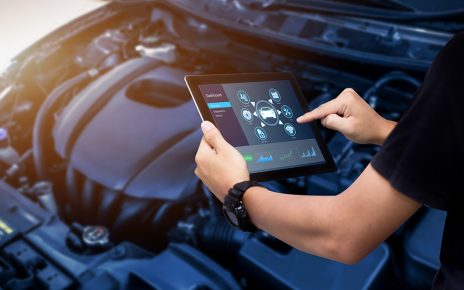The automotive GPS unit is one of the most practical technologies you can use in your car. It not only gives you navigation and traffic updates, but it also keeps track of your location and speed. This is essential information if you want to avoid getting pulled over by the police. Since most automotive GPS units are subscription-based, it’s important to choose the right one for your needs. Here are some of the features to look for: privacy features so that you don’t have to share your location with anyone a comprehensive map database that includes points of interest, hotels, and more voice recognition so that you don’t have to manually enter addresses or coordinates customizable filters so that you can focus on specific areas of interest
What is a GPS?
GPS (Global Positioning System) technology is a system used by automotive vehicles to determine their position on a map. GPS receivers use signals from orbiting satellites to triangulate the vehicle’s location. This technology has become increasingly popular due to its convenience and accuracy. Some automotive GPS units also include features such as navigation, mapping, and tracking.
What are the benefits of using a GPS unit in your car?
There are many benefits to using a GPS unit in your car. One of the most important benefits is that it can help you avoid accidents. If you know where you are going and what roads you are traveling on, it is much easier to stay safe on the road. GPS units can also help you find your way around unfamiliar cities or towns. Finally, a GPS unit can be helpful in finding businesses and services that are close to where you are.
How to choose the best automotive GPS unit for you
When looking to purchase a automotive GPS unit, there are a few things that you need to consider. Below we outline the key factors to keep in mind when selecting the best unit for your needs.
First and foremost, you need to decide what type of vehicle you will be using the GPS for. If you have a car, sedan or truck, then you will need a Dashboard Mounted Unit (DMMU). These units are permanently mounted in your vehicle and can provide accurate location data while driving. If you do not have a car or if you only use your vehicle for leisurely weekend drives, then an In-Vehicle Unit (IVU) may be more appropriate for your needs. IVUs typically have larger screens and are designed to be portable so that they can be used in any car.
Next, you need to consider what features are important to you. Many people prioritize accuracy over all else, but others may prefer smaller or more portable units. Additionally, some people want features like weather alerts and lifetime map updates while others simply want basic navigation functionality without all of the bells and whistles.
Last but not least, you will need to decide how much money you want to spend on your automotive GPS unit. Units can range from around $100-$500+, so it is important to do your research before making a purchase.
Tips for using a automotive GPS unit
If you own a car, then you probably rely on a automotive GPS unit for navigation. While these units have been around for many years, there are still some tips you can use to make sure your navigation experience is optimal.
1. Always update your software: Automotive GPS units typically come with a limited amount of map data, which can become outdated quickly. It’s important to check for new updates and install them as soon as they become available. This will ensure that the maps are up-to-date and provide accurate navigation directions.
2. Use landmarks: One of the great things about automotive GPS units is that they always identify major landmarks along your route. If you know the name of the landmark, then you can use that instead of searching for it on the map. For example, if you’re driving to the grocery store, try saying “Grocery store coming up on the right” instead of “I need to turn left at the gas station”.
3. Don’t rely exclusively on your unit: While automotive GPS units are a great resource for getting around town, they aren’t perfect. If there is an obstruction in your view or if there is construction going on near your destination, don’t be afraid to ask locals for directions – they usually know better than anyone else!
4. Take advantage of features: Many automotive GPS units offer features like live traffic conditions
Conclusion
In this article, we take a look at some of the best automotive GPS units on the market. We evaluate their features, explain why you might want to invest in one, and give our verdicts. Whether you are looking for a basic model to keep your vehicle safe while on the road or something more advanced that will help you navigate unfamiliar terrain, we have a unit perfect for you. So whether you’re searching for an affordable solution that does the job well or a pricier option with bells and whistles, we’ve gotcha covered. Thanks for reading!




